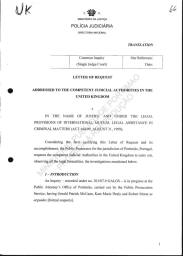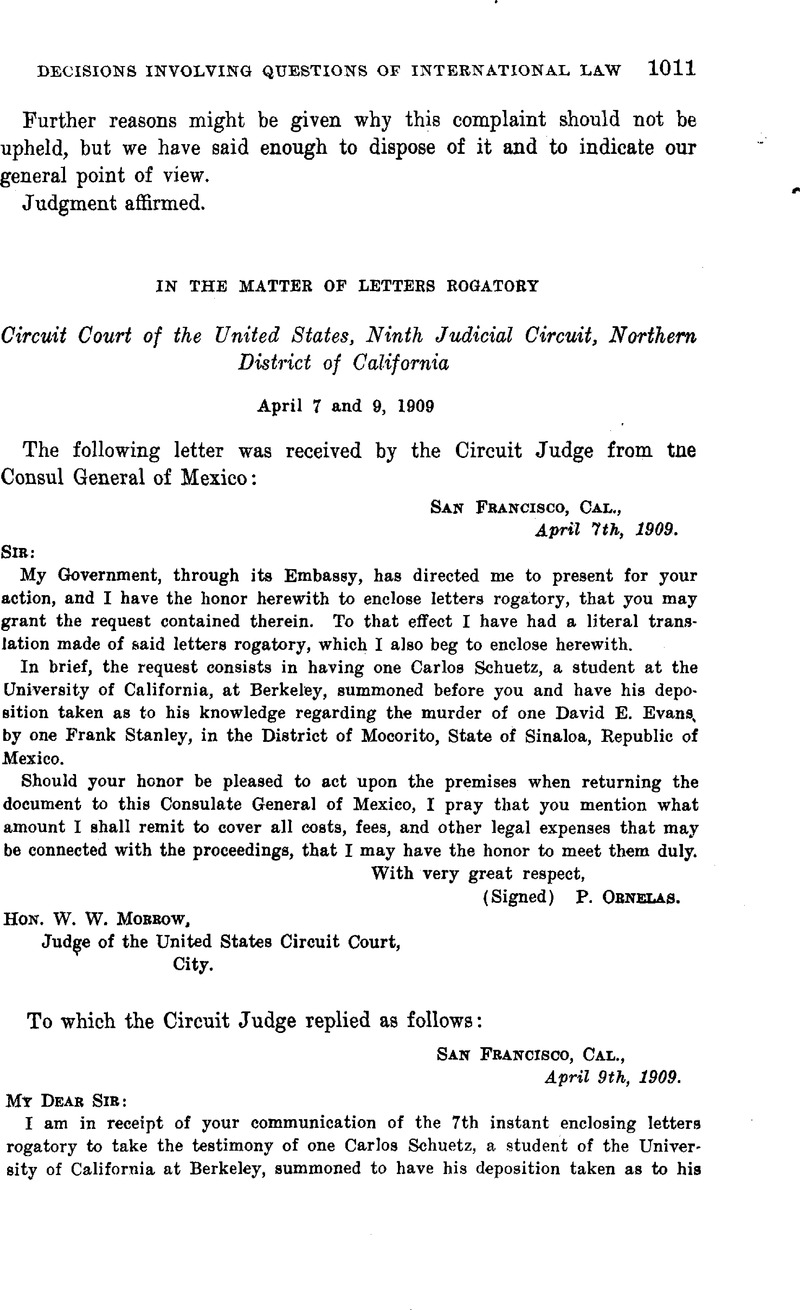Letters Rogatory Explained: Facilitating Legal Cooperation Between Countries

Interpretation of Letters Rogatory
Letters rogatory are formal demands made by a court in one jurisdiction to a court in one more territory, looking for assistance in acquiring proof or testimony for a legal action. This procedural system is essential in the context of worldwide regulation, where lawful systems may differ, and cross-border teamwork is essential. Letters rogatory promote the gathering of information that may be vital for settling situations, specifically in circumstances involving complicated multinational concerns.
Generally, these requests develop in civil, criminal, or management issues where an event requires evidence that is situated outside the territory of the requesting court. The letters function as a means to guarantee that the principles of due procedure are maintained, making it possible for courts to access proof that could or else stay unattainable because of legal or geographic barriers.
The use of letters rogatory is governed by international treaties, bilateral agreements, or residential regulations, which mark the treatments and commitments of the courts entailed. It is very important to keep in mind that the implementation of such requests is not guaranteed; they depend on the laws and techniques of the territory getting the letter. Therefore, letters rogatory are a critical tool for fostering lawful participation and making certain justice throughout borders.
The Process of Issuing Letters Rogatory
Issuing letters rogatory entails an organized process that ensures conformity with both residential and worldwide legal standards. The requesting event, usually a court or lawful authority, composes a formal demand outlining the nature of the assistance sought, the evidence or info required, and the lawful basis for the demand. This record should be precise to help with understanding by the foreign territory.

The next step entails sending the letters rogatory to the marked international authority. This is usually done via polite networks or worldwide legal help frameworks, ensuring that the demand is gotten and acknowledged by the foreign court. The international court after that processes the request according to its very own lawful procedures, ultimately reacting to the asking for celebration with the popular information or proof, hence promoting global legal cooperation.
Relevance in International Regulation
The relevance of letters rogatory in international regulation can not be overemphasized, as they act as an essential device for judicial teamwork across boundaries. These formal ask for support in lawful matters permit courts in one territory to inquire, evidence, or the visibility of witnesses from one more territory, consequently facilitating the management of justice in transnational instances.
Letters rogatory are particularly crucial in the context of globalization, where legal disagreements typically span several nations. They make it possible for the collection of proof that may or else be inaccessible, making certain that legal process are informed and fair. By cultivating partnership in between judicial systems, letters rogatory help maintain the rule of legislation and advertise shared regard amongst nations.
Moreover, the use of letters rogatory shows a commitment to worldwide standards and principles of teamwork, mirroring the interconnected nature of modern legal practices. It illustrates the value of sticking to recognized treatments and treaties, such as the Hague Convention, which gives a framework for these requests - Letters rogatory. Eventually, letters rogatory boost the efficacy of legal processes, making sure that justice is not prevented by geographical boundaries
Challenges and Limitations
In spite of their value, letters rogatory face numerous obstacles and limitations that can hinder their efficiency. One main concern is the differing lawful structures and treatments throughout territories, which can his response bring about misunderstandings and delays in the execution of requests. Different countries might have distinct requirements for the validity of letters rogatory, complicating the process further.
In addition, the often protracted nature of international legal cooperation can hinder timely access to evidence or witnesses. This hold-up might negatively influence ongoing investigations or lawful process, particularly in situations needing urgent action. The absence of sources and training in some jurisdictions can result in insufficient handling of demands, leading to insufficient or insufficient actions.
Nations with less official legal systems may battle to comply with the procedural rigor anticipated in letters rogatory. These challenges require continual dialogue and reform to improve the efficiency of letters rogatory in lawful collaboration.
Study and Examples

Alternatively, challenges can develop, as seen in a case including a European nation seeking evidence in a recurring criminal issue from a non-EU nation - Letters rogatory. The procedure was postponed due to administrative difficulties and differing legal requirements, inevitably hindering the investigation
These instances illustrate that while letters rogatory can facilitate worldwide participation and expedite legal procedures, they additionally highlight the demand for clear communication and understanding of legal frameworks between nations. Such instance studies underscore the significance of refining this device to boost performance and performance in global legal matters.
Conclusion
In recap, letters rogatory serve as an important device for helping with legal teamwork in between nations, making sure the collection of proof and testament throughout territories. Their value in global regulation can not be overemphasized, as they advertise due procedure and boost the performance of cross-border lawful procedures. Challenges such as varying political tensions and legal structures might impede their effectiveness. Continued initiatives to improve the procedure and simplify are crucial for cultivating stronger international judicial cooperation.
Letters rogatory are formal demands made by a court in one jurisdiction to a court in another jurisdiction, seeking help in navigate to this website obtaining proof or statement for a lawful proceeding. The asking for celebration, generally a court or lawful authority, prepares an official request describing the nature of the support sought, the proof or information needed, and the lawful basis for the demand. The foreign court after that processes the demand according to its own legal treatments, eventually reacting to the requesting celebration with the sought-after info or evidence, therefore promoting worldwide lawful cooperation.
Additionally, the use of letters rogatory demonstrates a dedication to international norms and concepts of cooperation, showing the interconnected nature of modern-day legal methods.International legal teamwork through letters rogatory is not without its real-world ramifications, as highlighted by numerous case research studies that highlight both successes and obstacles.
Comments on “Common Challenges Faced When Performing Letters Rogatory Requests”